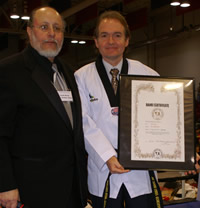Some of our services include:
- Comprehensive review of your medical history, physical examinations and treatment
- Medication management and medication refills
- State-of-the-art lab and diagnostic testing portable diagnostics when needed
- Medical Assessment and treatment
- Physical therapy
- Transitional Care Program from hospital to home; coordination of entire discharge process including the coordination and management of home care services and equipment
- Community placement consultations
- Physician Review for Authorizations:
- Home Health Authorizations and Care Plan Oversight
- Medical Equipment Authorizations
- Diagnostic Testing Authorization
- Naturopathic evaluations and recommendations
- Wellness coaching
- Aroma Therapy
- Accupressure
- Nutritional Counseling
- Professional Licensed Counseling
- Computerized Meridian Testing
- Traditional Chinese proprietary formula’s of Dr. Luke Cua’s
Some of the most common diagnoses and conditions we manage include:
| Alzheimer’s and DementiaBalance Impairment and Gait AbnormalitiesBrain Injury & StrokeCardiac Conditions: CHF, ArrhythmiasDepression and Coping With LossDiabetes | Nutrition AssessmentOsteoporosisPain Management and Palliative CareParkinson’s, Multiple SclerosisPulmonary Disease: COPD, Emphysema, PneumoniaWound CareFlu and Other InfectionsHypertension |
 |  |
| Dr. John Gray Author of “Men are from Mars, Women are from Venus” | Dr. Kimberly Dawn Wisdom Michigan Surgeon General |
Senior General Medicine & Wellness
- Serving: Wayne, Oakland, Macomb, Genesee, Livingston, and Washtenaw Counties
- General Medicine, Senior Medicine
- House calls and office visits
A Doctor at the Door: House Calls Make Comeback
by Maria Godoy
 It seems like an image from a bygone era: A physician steps up to the front door, black bag in hand, to check up on a patient at home. But the number of doctors who offer this type of personalized medical care is actually on the upswing.
It seems like an image from a bygone era: A physician steps up to the front door, black bag in hand, to check up on a patient at home. But the number of doctors who offer this type of personalized medical care is actually on the upswing.
At-home visits from the doctor remain rare for most Americans, but the service is becoming increasingly available to the elderly. An analysis published last month in the Journal of the American Medical Association found that house calls to Medicare beneficiaries rose by 40 percent from 1998 to 2004.
Some physicians are affiliated with house calls programs begun in recent years by hospitals such as the Washington Hospital Center, which Joseph Shapiro profiles in a related report. But the practice has also been taken up by one-man practices and physicians groups, the largest of which is the Visiting Physicians Association, which works with more than 25,000 patients in Georgia, Ohio, Wisconsin, Texas and Michigan.
“A lot of people seem to think of house calls as something from a past era in medicine,” says Dr. Steven Landers of Case Western Reserve University, who conducted the analysis. “But there are a lot of forces in the health-care system that seem to be making this service have a bit of a comeback.”
Reviving Past Practice with a 21st-Century Twist
House calls were the norm for physicians until the end of the 19th century, when the rise of hospitals and health insurance and improved transportation led to a shift to the office-based practice. By 1971, only 1 percent of U.S. doctors were making home visits to patients. The travel time involved made them economically impractical, and medical practices became focused on seeing a high-volume of patients daily.
According to Landers, the recent return to house calls in part reflects Medicare’s 1998 decision to boost what the government reimburses physicians for home visits by as much as 50 percent. For doctors, that made house calls less of a money-losing proposition.
And advances in technology have greatly expanded the arsenal of tools in a physician’s black bag. Beyond stethoscopes, visiting physicians now bring along portable X-ray machines, laptop-based lung tests and EKG, and fingertip-based diagnostic devices that can test for a range of measurements, including blood sugar and blood count levels.
“The laptop that I take into patients’ homes can be used as my electronic patient-record system,” notes Landers, who directs the house call program at Case Western Reserve’s department of family medicine.